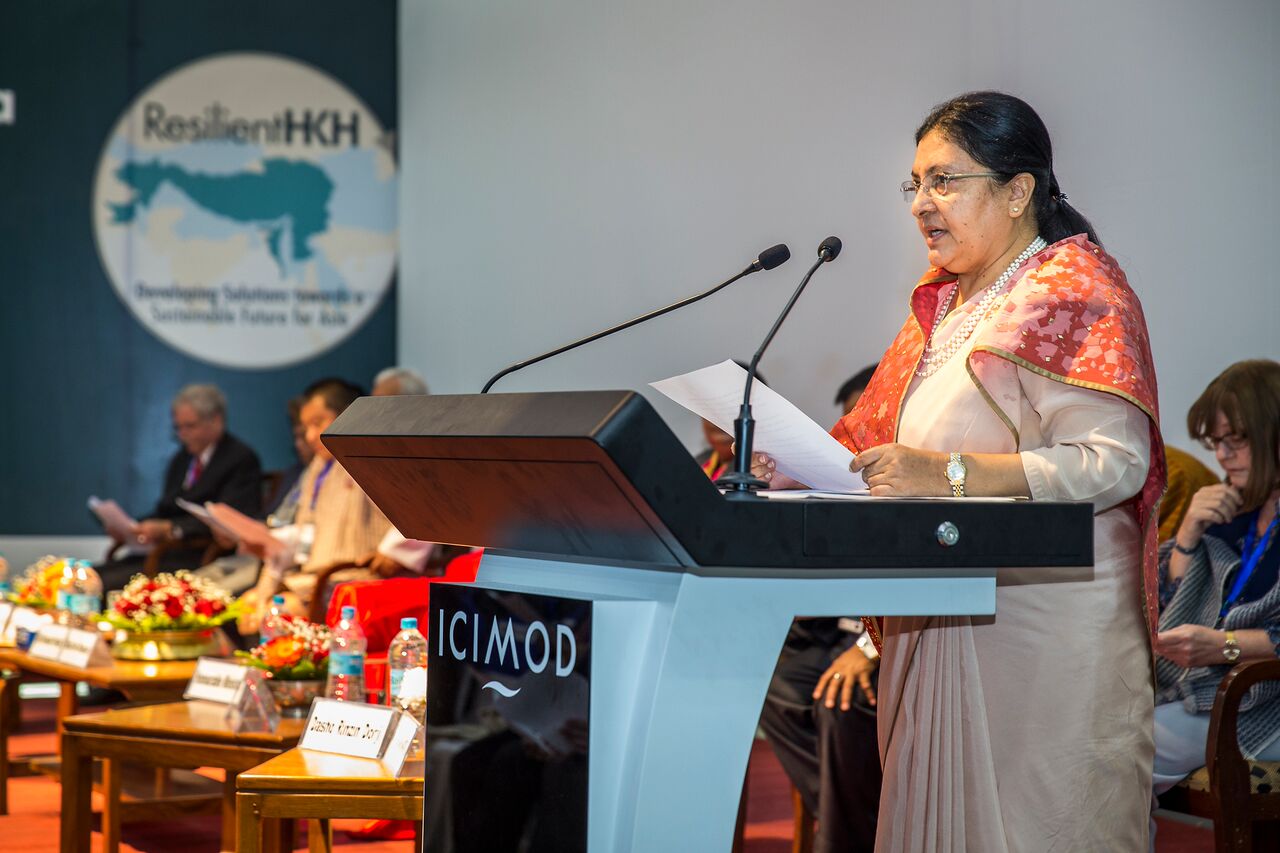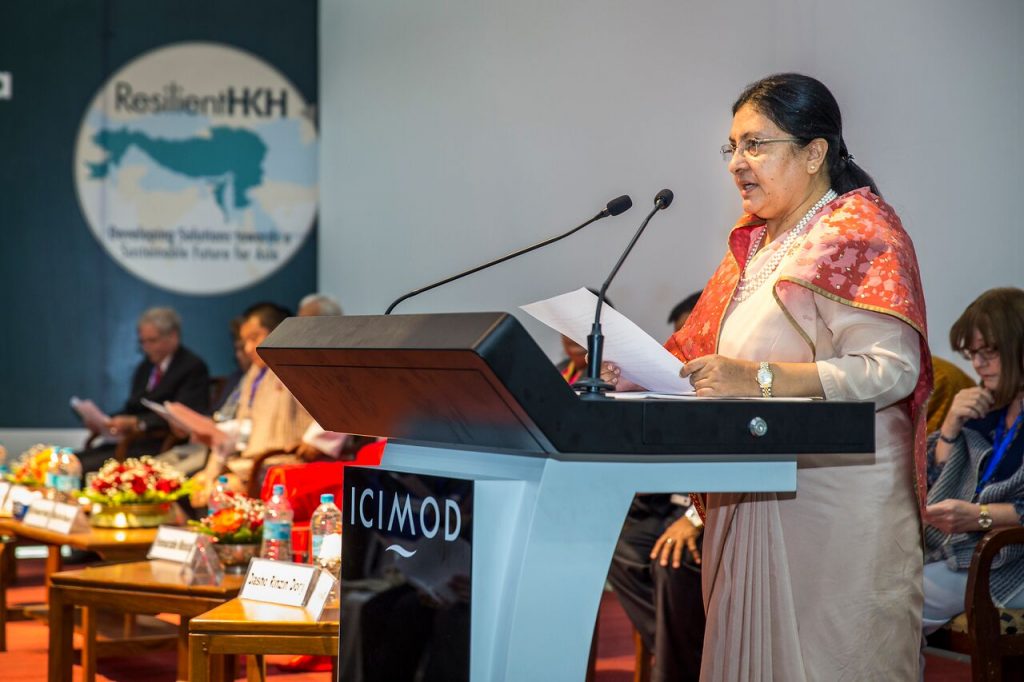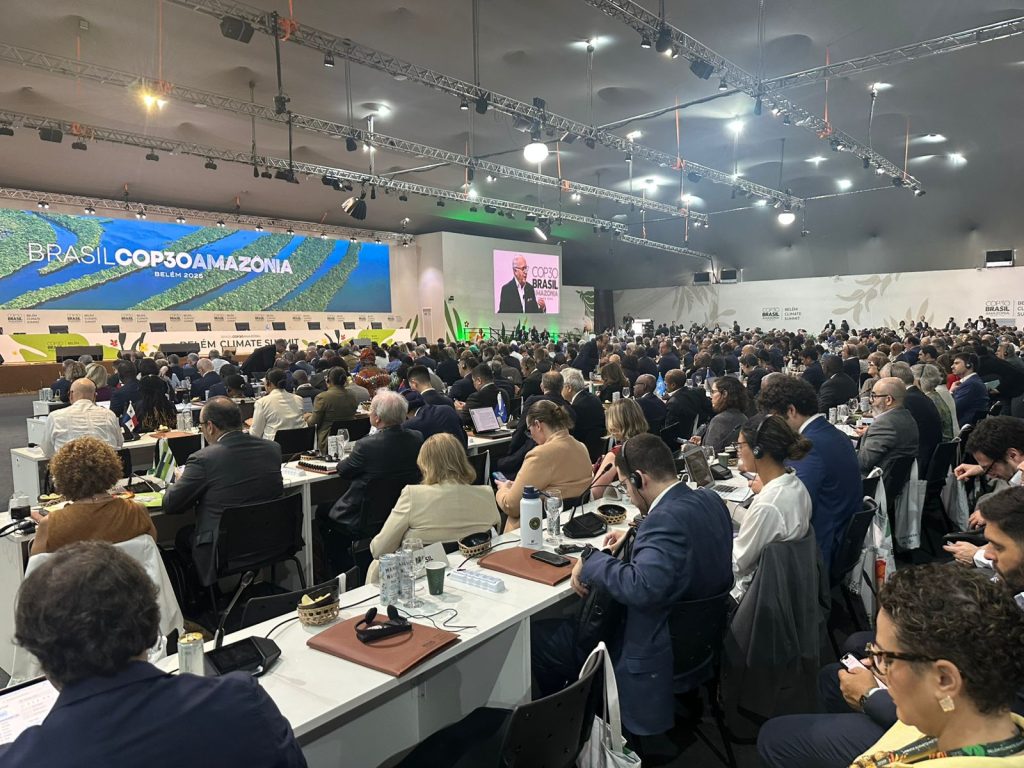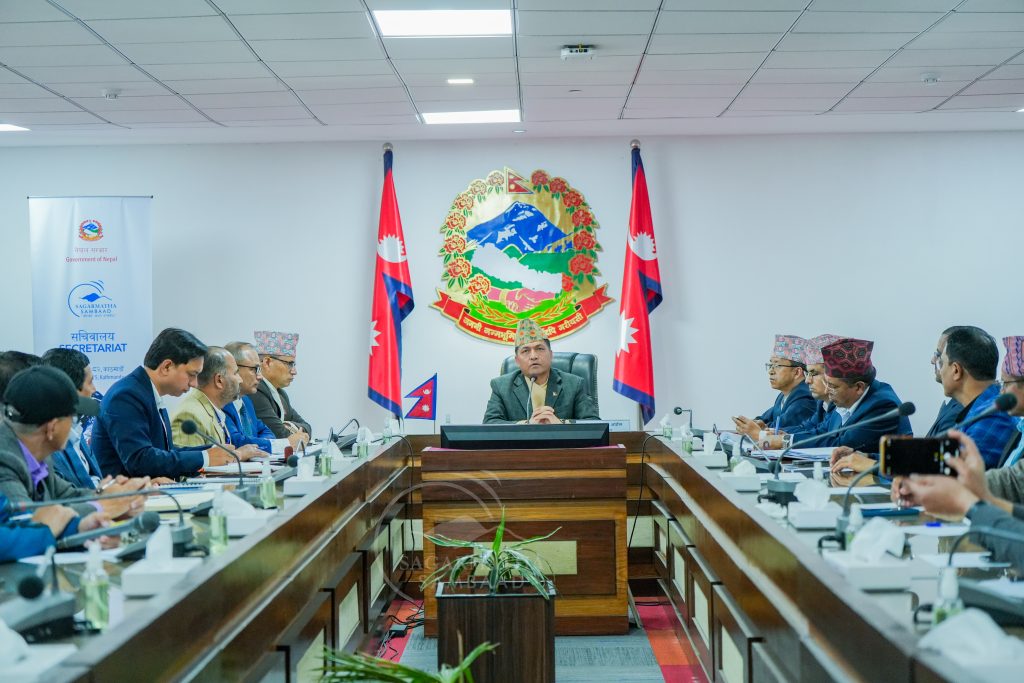Experts in Kathmandu to discuss solutions for mountain communities
- Nature Khabar


More than four hundred experts around the world are taking part in the international conference Resilent Hindu Khush Himalaya: Developing Solutions towards a Sustainable Future for Asia , which opened today in Kathmandu. Over the next four days this group will discuss ideas for strengthening the fragile environments and communities of the Hindu Kush Himalaya (HKH), a mountain range that spans from Afghanistan to Myanmar.
Bidya Devi Bhandari, President of Nepal, inaugurated the conference today followed by a panel discussion on the role of a resilient HKH for creating a more sustainable Asia.
To address growing challenges to mountains and mountain communities, the Ministry of Population and Environment (MOPE), Government of Nepal and the International Centre for Integrated Mountain Development (ICIMOD) are co-hosting the conference in Kathmandu .
"I hope the outcomes of this conference will contribute toward improving the socio-economic conditions of the people living in the Hindu Kush-Himalayan region", said Mithila Chaudhary, Minister of Population and Environment, Government of Nepal.
Secretary Prakash Mathema, Ministry of Population and Environment, Government of Nepal, said that “The adverse impacts of climate change and other drivers of change pose serious threats to our development efforts, so urgent actions are required from all to build resilience of people and ecosystems.”
The conference will run through December 6, focusing on ideas and solutions to create effective and sustainable changes to improve mountain livelihoods.
ICIMOD’s Director General, David Molden said, “ we know that mountains face challenges, but they also provide opportunity: opportunities for collaboration, opportunities for partnership and private investment, opportunities for youth and opportunities to envision and work toward a future where mountains can become examples of changes that can inspire the rest of the world. We know that mountains can bring us together.
The HKH sources 10 major river systems in Asia that provide water, ecosystem services, and livelihoods to more than 210 million people. The region holds and distributes water for more than 1.3 billion people living in downstream river basins. Climate change and other drivers of change in the HKH have already begun to impact ecosystems and communities increasing vulnerability and exposure to natural disasters such as floods, droughts, and landslides.
The conclusions drawn from the conference will add a mountain perspective to larger global agreements, such as the Sustainable Development Goals (SDGs) – the United Nations’ set of milestones for eradicating poverty and tackling climate change by 2030. The Resilience conference is an indication that ICIMOD’s eight regional member countries recognize the need for a collaborative approach to achieve the SDG targets.




Feedback